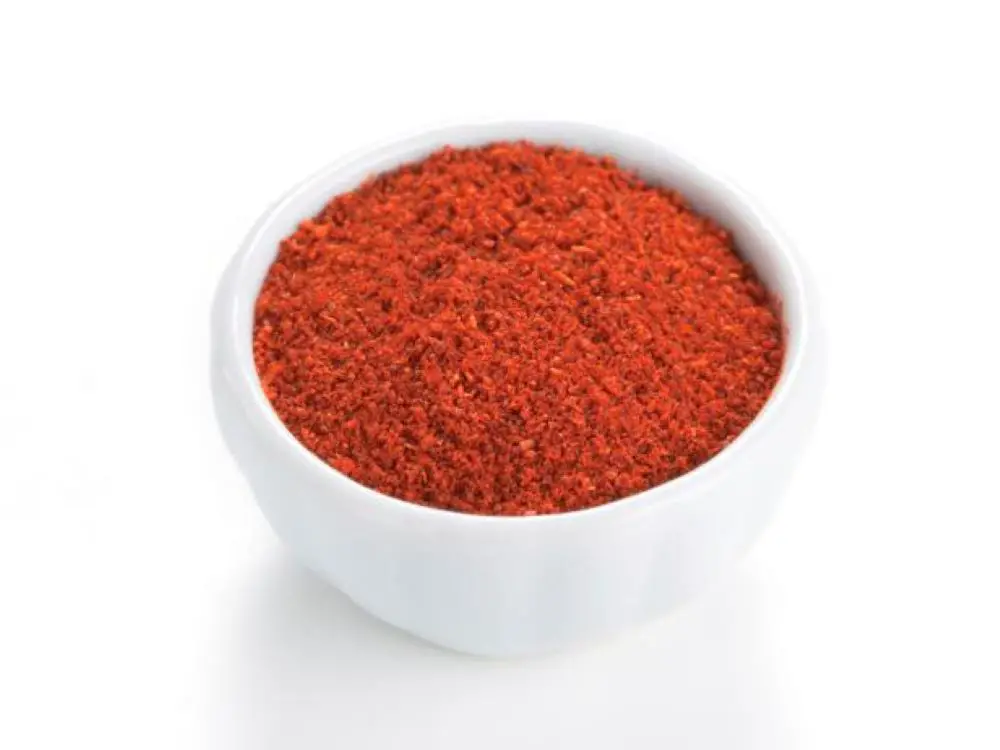We all know DEET and pesticides work, but sometimes it’s better to choose a more natural solution. The internet abounds with rumors about spices, oils, and lots of other ways to repel bugs, and cinnamon comes up often. Does it really work to sprinkle a seasoning around? The good news is that plenty of natural solutions do work. Avoiding chemicals and unpleasant ingredients is easy when you have the facts. While those lab-created concoctions can smell unpleasant and even contain toxic ingredients, with spice, you always know what you’re getting. Moreover, a cinnamon allergy is incredibly rare. I will help you sort the facts from the fiction so you’ll know everything you need to use cinnamon against pest insects. Plus, your house and garden will also smell incredible. Skip the unpronounceable ingredients and find out all about using your favorite spice to do a lot more than making pies.
Does cinnamon repel bugs? Cinnamon does repel bugs. While it won’t work on everything that crawls, wriggles, or flies, this wonderfully scented spice is an excellent deterrent for bedbugs, mosquitoes, and ants. Moreover, you can sprinkle it in the garden or around the house safely and even wear cinnamon oil (diluted in a carrier) to help prevent pests.
Why Use Cinnamon to Repel Bugs
There are plenty of great reasons to use cinnamon as your go-to bug repellant at home. Most obviously, it works. When you’re trying to prevent insects around your home and garden, effectiveness matters most. You could spend a fortune on placebos that do nothing, but why would you want to do that?
We already covered two of the main benefits. Cinnamon smells delightful. Undoubtedly, some chemical sprays also smell alright, but most have a rather nasty odor that people don’t honestly want to spend time around. Skip the nastiness and opt for a warm and inviting aroma instead.
Additionally, cinnamon is non-toxic. You can sprinkle it liberally indoors and out with little to no concern. According to the ASPCA, cinnamon is safe for use around cats, dogs, and horses.
More importantly, cinnamon is safe to use around small children. Even infants as young as six months old can have this aromatic spice. If your crawling baby licks cinnamon, it’s not going to send them to the emergency room, and they might just like it, which is a whole different issue.
A four-ounce bottle of GreenHealth Cinnamon Cassia Essential Oil from Amazon will repel a lot of bugs. Add some to cotton balls and place them around the house to prevent insects. You’ll be surprised at how quickly you start to see results. Order yours by clicking here.
Other Benefits of Cinnamon Bug Repellant
The smell and safety aren’t the only reasons to use cinnamon to control your pest insect problems. Unlike some exotic ingredients, this spice is incredibly common. Undoubtedly, you’ll be able to get your hands on plenty of cinnamon. There are no waiting times or out of stock issues when you can pick up what you need at every grocery store in town.
Furthermore, using cinnamon to control pests is ridiculously easy. Sprinkle it liberally. Alternately you can use the essential oil in diffusers, drops, body oil, and even in the laundry to help prevent problem bugs from taking over your house.
Using cinnamon to repel bugs is the perfect double whammy. Not only will this delightful solution begin working right away, but it has staying power. The scent and cinnamon will hang around for quite a while.
Naturally, if you’re using spices or oils outdoors, you’ll need to reapply more often. Rain, wind, and other weather will diminish the efficacy and disburse the cinnamon over time. Whenever you notice more bugs, add some cinnamon to the area, and they should relocate within hours or days.
I recommend Majestic Pure Cinnamon Essential Oil for outdoor and indoor use. The therapeutic grade oil is packaged in the USA, so you can feel great about supporting local jobs while you get rid of your pest problems. A pure, undiluted oil like this is potent and helps deter insects quickly. Check the reviews on Amazon by clicking here.
Finally, cinnamon is cost-effective. You don’t need to shell out a fortune to get it so that you can spend that extra cash on other solutions for your home. Who doesn’t like having more money? Better still, it only takes a few moments to get a lot of pest control done, so you get a sense of accomplishment without a lot of wasted time.
Cinnamon Repels Bugs Fast
Cinnamon is not a panacea, but it will keep three major bug problems at bay. Ants, bedbugs, and mosquitoes are all a significant hassle. Luckily, the solution for all three is as simple as a trip to your spice cabinet. You can get rid of those critters and make the whole house smell like chai spice.
Grab a bottle of Plant Therapy Cinnamon Bark Essential Oil for aromatherapy while you get rid of those pesky bugs. Moreover, Plant Therapy’s certified aromatherapists are on hand to help answer all your questions. Plus, this oil goes through a multitude of tests by independent third-party labs. Learn more on Amazon by clicking here.
Mosquitoes
Unfortunately, unless you live in Iceland, you’re going to have mosquitoes in the warmer months. While they can buzz annoyingly, and their bites are incredibly itchy, that’s not the only problem with these flying mini-vampires.
Mosquitoes are plague carriers. They can bring Chikungunya, Dengue, Malaria, West Nile, and Zika viruses with them when they invade. Hence, you need to avoid these bugs more than most.
Put a few drops of cinnamon oil in standing water to help kill mosquito eggs, and wear it in a diluted carrier oil to keep them off your skin. You can stick cinnamon bark around your yard to make it unfriendly to bugs, and even add some to a diffuser for indoor protection.
Bedbugs
Bedbugs are the number one pest in the USA. More than half of all pest control specialists, sixty-eight percent, say bedbug infestations are the hardest to get rid of, and ninety-seven percent of pest control workers have treated for bedbugs at some point in their career. Worse still, there are at least six different species of bedbugs in the US.
The good news is that you can help prevent and treat them quickly with cinnamon. Sprinkle it around on your carpets and mattresses. Add it to diffusers for your indoor air, and put a few drops of cinnamon oil in your body wash, shampoo and conditioner to help protect your skin.
You can launder all your clothing using cinnamon oil drops in the laundry detergent, and even spritz a little cinnamon oil on dryer sheets before you toss them in the machine. Don’t forget curtains, pillows and other fabrics in the house.
Finally, you can make a cinnamon-infused spray to get cracks between floorboards and other problem areas. Simply put, a few cinnamon sticks in a regular spray bottle along with some pure water and let it steep into a mild, cold brew cinnamon tea over a few days. Set it for a fine mist and go to town on your walls and surfaces. This is especially good for carpets.
Ants
Summertime ants in the kitchen are a major pain. Interestingly, they seem to find ways inside no matter how well sealed you think your home is already. Don’t get frustrated; get to the spice cabinet.
Ants use a scent trail to make a path for others to follow. Cinnamon oil is capable fo interfering with their scent receptors. In short, the ants get lost and can’t forage for food effectively. Put drops of cinnamon oil around anthills.
You can also stick cinnamon sticks around the foundation of your home, or in a garden. It won’t hurt the plants and may help with root development. Finally, you can sprinkle door and windowsills with cinnamon to help deter ants from coming inside.
Treat a Bug Bite with Cinnamon
Cinnamon has another superb insect-related use. You can put it on bug bites to help soothe the pain and itching. Cinnamon honey will also keep your skin moisturized while helping heal the bite. Better still, the recipe is so simple you won’t believe you didn’t know about this years ago.
For this bug-bite treatment, you will need a small container with a tight-sealing lid, cinnamon, and honey. I prefer raw, local honey, but any type will work. For the cinnamon, you can use sticks, powder, or even a few drops of oil to make this surprisingly effective blend. It’s that easy.
To treat your bug bites, you simply smear a drop or two on the affected area. Honey is sticky, but it works to heal open wounds because it’s antibacterial. While some kinds of honey, like manuka, are better than others, all pure honey is safe for use on bug bites.
Once the sting is gone, you can leave the honey in place like you would with iodine or bacitracin, and cover it with a bandaid. Alternately, you can always wash it right off. Plus, this remedy is safe to use as often as necessary, so reapply as needed without concern.
Cinnamon Honey Recipe
Take some honey, you won’t need much, and put it in your container. If you want an exact measurement, then I recommend two tablespoons to start. You don’t need much for most bites, and there’s no reason to waste good honey making a huge batch you won’t use up for years.
Any honey is okay, and you can probably use what you have on hand. However, please read the ingredients list. If it says anything in addition to “honey,” then pick different honey that doesn’t have unnecessary additives.
Next, you want to add your cinnamon. If you have sticks, then break a small piece off and drop it in. This method takes the longest because you will need the cinnamon to infuse into that honey. You can always grate a stick and mix it in instead.
When using ground cinnamon or oil drops, you need to mix it up before application. A quarter teaspoon of powder or about three to five drops should suffice, but you can adjust the recipe to your liking.
If you want a whole jar of cinnamon honey for eating as well as wounds and bites, then stick entire cinnamon sticks into your honey when you get it home from the store. It will take a few days to infuse, but the smell and flavor are lovely.
Final Thoughts
Cinnamon is a powerful bug-repelling tool for your home. Not only is it inexpensive and easy to get, but it’s safe to use as well. Kids, pets, and even allergy sufferers have little to fear from this everyday spice. On the other hand, bedbugs, ants, and mosquitoes don’t feel so good around cinnamon.
From killing mosquito eggs to treating the poison from bug bites, you need more cinnamon in your life. Don’t be afraid to go a heavy-handed when disbursing oil, sticks, or powdered spice in your home and garden. Sure, it may be a little off-season for that warm apple pie smell, but toss a few star anise in with it, and your home will smell like chai tea instead.
If you’re not already using cinnamon in your garden and home, then I recommend adding it to your arsenal. Not only will everything smell delicious, but you’ll have far fewer bugs to contend with this year.

